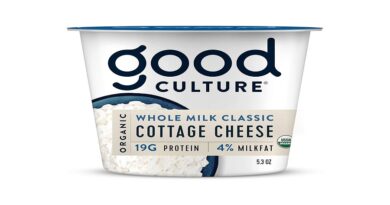Active Care Nutrition: Fueling Your Active Lifestyle
Nutrition plays a pivotal role in leading an active and healthy lifestyle. As you embark on your fitness journey, understanding active care nutrition principles becomes vital. This article will introduce the basics, debunk myths, and provide practical strategies to fuel your body more efficiently.
Key Components of Active Care Nutrition
Macronutrients and Micronutrients
Before diving into specific strategies for Active Care Nutrition, it’s essential to gain an understanding of its foundational elements. Macronutrients such as carbohydrates, proteins, and fats provide the energy needed for physical activities, while micronutrients like vitamins and minerals contribute significantly to overall health and performance.
Hydration Drinking enough fluids during workouts, including sports drinks packed with electrolytes, to stay properly hydrated is equally crucial to performance and fatigue management. Incorporating water or sports drinks that contain electrolytes into your regimen will ensure optimal hydration levels.
Sports Nutrition for Diverse Athletic Activities
Recognizing that different activities require unique nutritional strategies is of utmost importance. Cardio exercises necessitate sustained energy sources like carbohydrates, while strength training requires protein-rich meals to support muscle recovery.
Pre-Workout Nutrition Strategies
Timing of Meals Eating before exercising is vitally important, and taking in a balanced meal 1-2 hours beforehand ensures your body receives enough fuel without experiencing discomfort while engaging in physical activity.
Ideal Nutrient Ratios
Adjusting macronutrient ratios to meet the demands of your workouts is an art. Discover which nutrients work best for your body by considering the type and intensity of your workouts.
Post-Workout Nutrition Essentials
After exerting yourself physically, recovery is of the utmost importance. Learn about foods that support muscle repair post-workout as well as the significance of protein intake to maintain proper muscle repair.
Balancing Nutrient Intake
Carbs May Be Essential for Energy
Although carbohydrates sometimes get a bad rep, they’re essential for energy. Learn how to incorporate healthy carbohydrates into your diet for sustained vitality.
Healthy Fats for Sustained Energy

Don’t fear fats; learn how healthy fats contribute to sustained energy levels and can play an essential role in active care nutrition. We provide supplements for active individuals.
Experience the world of supplements—like vitamins, minerals, and sports-specific boosters—as you discover when and how they should fit into your daily life.
Hydration Strategies Are Essential
Hydration is vital to overall well-being and performance. Understand its significance today!
Maintaining electrolyte equilibrium during intense workouts is of utmost importance, so read up on which beverages and foods can assist in reaching equilibrium in this regard.
Mindful Eating in Active Nutrition Care
Don’t underestimate the significance of mindful eating when it comes to active nutrition care. Take note of your body’s hunger signals and avoid restrictive diets that might hinder performance.
Meal Planning for Active Lifestyles
Weekly Meal Prepping
Simplify your nutrition routine by prepping weekly. Guarantee that nutritious and well-balanced meals will always be ready when life gets busy! Snack Strategies
Those are Quick and Nutritious
Explore quick, nutritious snacks to fuel an active lifestyle and provide sustained energy.
Understand and Address Common Misconceptions About Cannabis Dispell myths surrounding nutrition while uncovering the truth behind occasional indulgences.
Impact of Nutrition on Mood and Focus

Diet is an integral component of overall well-being and should not be underestimated as such. Uncover how nutrition impacts mental well-being with our guide on connecting the dots between nutrition and mental well-being. Foods to Promote Mental Well-Being Specific foods have been known to support mental well-being. Explore what mood-lifting choices exist to increase overall well-being.
Staying Consistent With Active Care Nutrition
Setting Realistic Goals
Stick with realistic yet attainable fitness-related goals that fit within both your lifestyle and fitness aspirations for success. Setting such targets requires consistency over time to stay on track.
Overcoming Challenges
Acknowledging and Overcoming Obstacles Navigating Your Active Care Nutrition Journey Recognize and Overcome Obstacles Toward Success When encountering obstacles on your active care nutrition journey, from time constraints to unexpected setbacks, find strategies that keep you moving in the right direction.
Real-Life Success Stories Discover inspiring anecdotes from individuals who have taken up active care nutrition and experienced a dramatic transformation in their fitness journeys.
Conclusion
Active care nutrition is at the core of any successful fitness journey. By understanding and applying the principles outlined herein, you’ll become a more efficient fitness journey participant while enjoying an active and vibrant life.
Remember that active care nutrition gives energy for an active life!
Active nutrition can benefit anyone leading an active lifestyle, from casual exercisers to experienced athletes.
FAQs
- How can I stay hydrated during my workout sessions?
Pay attention to your body’s thirst signals, sip water or electrolyte-rich beverages throughout your workout sessions, and stay hydrated by sipping fluids such as sports drinks that contain electrolytes. - Can I enjoy treats while following active care nutrition?
Yes, occasional treats are allowed when following active care nutrition – the key is moderation and understanding their role within an overall nutrition plan. - How can I reduce time constraints associated with meal prepping?
Create quick and simple recipes, as well as batch cooking when there is extra free time.
Supplements can help active individuals fulfill any nutrient gaps that may exist; although diet should remain the primary source for nutrition, supplement use may provide an additional means.


